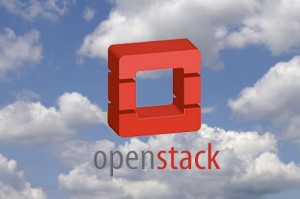 In a pairing of unlikely partners, Piston Cloud Computing announced it will work to support integration of VMware’s open source platform-as-a-service offering Cloud Foundry with OpenStack, the open source infrastructure-as-a-service model.
In a pairing of unlikely partners, Piston Cloud Computing announced it will work to support integration of VMware’s open source platform-as-a-service offering Cloud Foundry with OpenStack, the open source infrastructure-as-a-service model.
In recent weeks, the rhetoric between the open source and proprietary cloud offerings in the IaaS market has intensified. But today’s move signals a more collegial tone in the PaaS market and what one analyst calls a recognition by providers that integration across multiple clouds and between IaaS and PaaS is key for cloud adoption by end users.
Piston Cloud announced today the Cloud Provider Interface, an open source project that will allow for integration of OpenStack with Cloud Foundry. Piston Cloud leverages the open source OpenStack code to create an IaaS cloud deployment model aimed at enterprise users. Piston Cloud officials say they hope Cloud Foundry support will be available in a future release of its OS product and plan to submit Cloud Foundry as an incubator project for the full OpenStack project.
Cloud Foundry, meanwhile, recently celebrated its one-year anniversary as an open source PaaS project backed by VMware. Since its founding, VMware has made its desire clear related to Cloud Foundry’s integration across multiple public cloud providers. Earlier in April, VMware announced Cloud Foundry BOSH, which is a series of tools that make Cloud Foundry integrations and deployments easier and more automated. Cloud Foundry already supports IaaS models such as VMware’s vSphere and Amazon Web Services.
The partnership between Piston Cloud and VMware is not totally unexpected though, said Krishnan Subramanian, principal analyst at Rishidot Research, who tracks the cloud industry. There has been buzz about integration of OpenStack with Cloud Foundry given they are both open source projects and Piston Cloud is a natural company to take that leadership position, Subramanian said.
Piston Cloud co-founder Josh McKenty is one of the co-founders of the OpenStack project. “These two companies fundamentally disagree on their core philosophies but this is more of a marriage of convenience,” Subramanian said.
It’s only natural, Subramanian said, for OpenStack to begin to integrate with a PaaS offering. As the IaaS market becomes commoditized, the real value for providers is in PaaS offerings, he said.
OpenStack end users, such as cloud service providers and large enterprises, will increasingly demand having PaaS integration, Subramanian predicts. While there has been some discussion about OpenStack developing an in-house PaaS tool, Subramanian said that would have been a waste of resources if there are open-source PaaS project that OpenStack can integrate with, such as Cloud Foundry.
Meanwhile, VMware is looking to enhance its open source credentials, Subramanian said.
In the IaaS market, VMware is seen as a proprietary competing offering to OpenStack, but in PaaS it is looking to establish itself as an open source player. “Even though [VMware] released Cloud Foundry under open source license, there are still suspicions about VMware’s hidden agenda among open source practitioners and pundits,” Subramanian said.
“By supporting this project, VMware wants to clear up any apprehensions that they will derail the CloudFoundry project in the future to suit their business agenda. In my opinion, I don’t see VMware having any such agenda but even if they have, there will be forks and there are credible companies ready to lead the fork,” he added.





